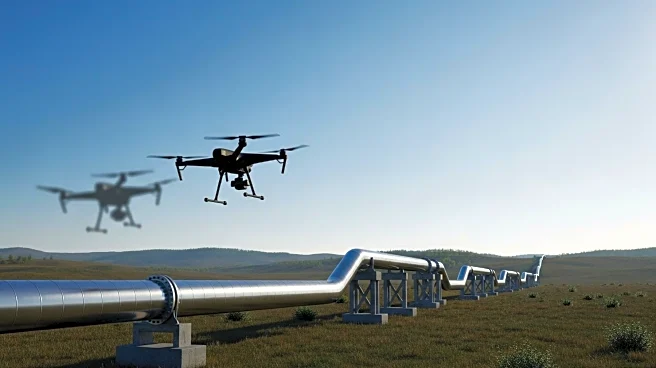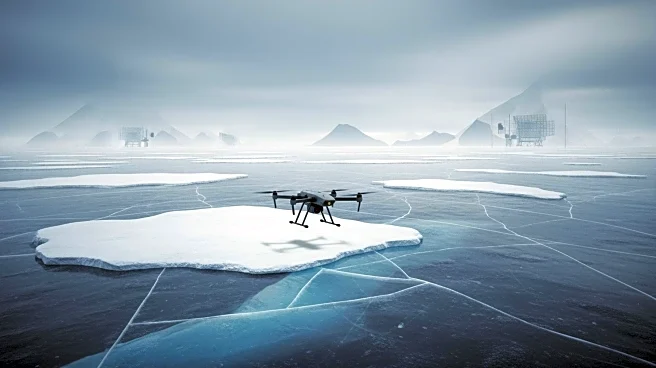What is the story about?
What's Happening?
Russia's oil pipeline monopoly, Transneft, has issued a warning to oil producers about potential reductions in output due to ongoing Ukrainian drone attacks on seaport and refinery infrastructure. According to industry sources cited by Reuters, Ukrainian drones have targeted at least 10 refineries since August, leading to a temporary reduction in refining capacity by nearly 20%. A recent attack on Primorsk, Russia's largest oil port, temporarily halted operations. In response, Transneft has restricted producers' ability to store oil in its pipeline system and cautioned that further damage could necessitate accepting less oil from producers. Despite these reports, Transneft has labeled the information as 'fake' and part of the West's 'information war' against Russia.
Why It's Important?
The escalation of drone attacks on Russia's oil infrastructure by Ukraine represents a significant threat to Russia's economy, which heavily relies on oil exports. With Russia accounting for 9% of global oil production, any disruption in its output could have widespread implications for global oil markets, potentially leading to increased prices and supply chain disruptions. The attacks also highlight the strategic importance of oil infrastructure in the ongoing conflict, as Ukraine targets a key revenue source for Russia's war efforts. This situation underscores the vulnerability of critical infrastructure in modern warfare and the potential economic ramifications of such targeted attacks.
What's Next?
If the drone attacks continue, Transneft may be forced to further limit oil storage and reduce acceptance from producers, potentially leading to a decrease in Russia's oil output. This could prompt Russia to enhance its defensive measures around key infrastructure and seek diplomatic or military solutions to mitigate the threat. Additionally, global oil markets may react to the potential supply disruptions, influencing prices and prompting international stakeholders to reassess their energy strategies. The ongoing conflict may also lead to increased geopolitical tensions, affecting international relations and trade policies.
Beyond the Headlines
The use of drones in the Russia-Ukraine conflict highlights the evolving nature of warfare, where technology plays a crucial role in strategic operations. This development raises ethical and legal questions about the use of drones in conflict zones, including the implications for civilian safety and international law. The situation may also influence future military strategies and defense policies, as nations consider the integration of drone technology into their arsenals. Furthermore, the economic impact of such attacks could lead to long-term shifts in global energy markets and influence the transition towards alternative energy sources.


















